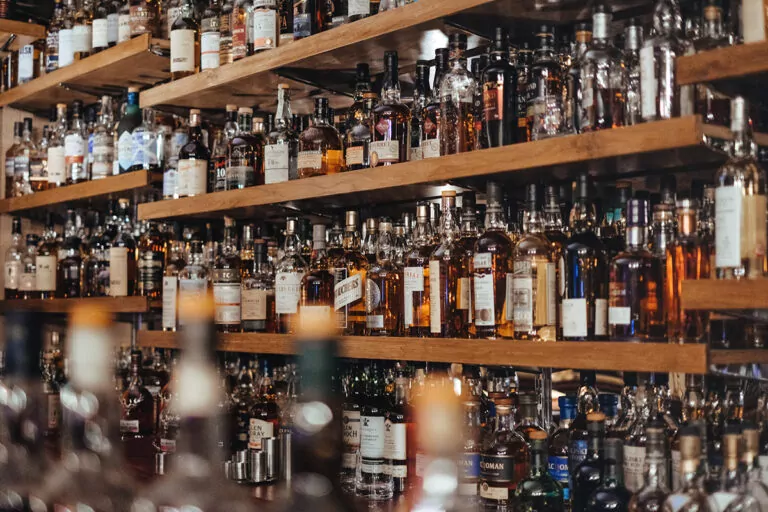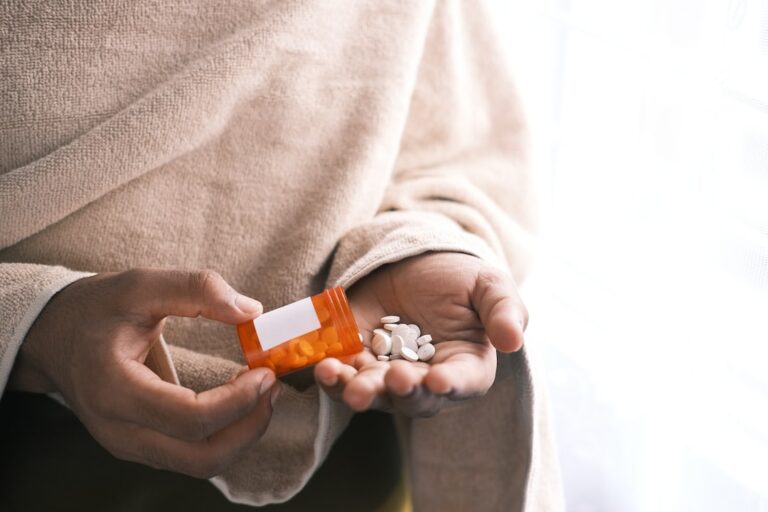During the 1960s, drugs were symbolic of rebellion as young people protested war and social injustice. The federal government responded by stopping research into the safety and usefulness of certain drugs and launching efforts to eliminate drugs across the country.
President Richard Nixon declared a war on drugs in June 1971, saying, “America’s public enemy number one in the United States is drug abuse.” The Drug Enforcement Agency, or DEA, was created in 1973, triggering the hundreds of millions of dollars that have been spent to stop drugs at America’s borders. Meanwhile, common street drugs like marijuana and heroin were heavily (and some would say overly) criminalized.
During the 1980s and 1990s, rates of incarceration skyrocketed. The number of people jailed for nonviolent drug offenses exploded from 50,000 in 1980 to more than 400,000 in 1997. To make matters worse, rates of recidivism — i.e. the frequency with which offenders end up back in the prison system — showed a similarly alarming upward trend. As President Ronald Reagan launched his “Just Say No” campaign, zero-tolerance policies and mandatory minimum sentences were implemented, resulting in increasingly severe penalties for drug-related offenses.
Although there was no significant reduction in drug use, President George W. Bush poured more money into the war on drugs beginning in 2001. This led to student drug testing and militarization of law enforcement. At the same time, drug overdose fatalities rose quickly. After 30 years, the war on drugs was an abject failure.
A Changing Tide
In 2015, there were 1.3 million arrests for drug possession, six times the number of arrests for drug sales. As recently as 2017, President Donald Trump promised to ramp up the war on drugs in response to the opioid epidemic, even as states were pushing to legalize marijuana for recreational use. The public had begun to recognize that incarcerating people wasn’t solving the problem or helping people who were dealing with drug addiction
Some leaders during the war on drugs had focused on the supply of drugs. Some focused on stopping demand for drugs. Some focused on punishing the drug user. These approaches were all doomed to fail because there was no health-based component to reducing drug use.
Today, doctors, scientists, and the general public are demanding an increased focus on education, prevention, treatment, and rehabilitation. This approach recognizes that drug addiction is a disease, not simply illegal or immoral behavior.
Doomed from the Start
You can’t even make the argument that the war on drugs started with the best intentions. A top Nixon aide admitted that the real reason for starting the war on drugs was to take on anti-war hippies and African-Americans. Associate them with drugs and demonize them on the news.
Do you have a loved one struggling with addiction?
We know how hard that can be. Give us a call to find out what options you have.
Of course, drug laws have a dark history of racism. There were opium laws directed at Chinese immigrants in the 1870s, cocaine laws directed at African-Americans in the early 1900s, and marijuana laws directed at Mexicans in the 1920s. Even today, we continue to see evidence that people of color are disproportionately affected by drug enforcement.
In addition to having roots in racial injustice, the war on drugs has focused on punishing people instead of helping and treating people. This has led to a vicious cycle of crime, corruption, criminalization, media hysteria, and war zones at the U.S.-Mexico border. Prison populations soared, while investments in treatment and rehabilitation were dramatically reduced or completely cut.
Meanwhile, the total cost of the war on drugs has surpassed $1 trillion.
A More Peaceful Approach to Drug Policy
Did the war on drugs fail? Absolutely, it did. Fortunately, war is being replaced with a more sensible, peaceful approach to drug policy that focuses on health, not criminalization. Drug users are encouraged to seek help instead of hiding in fear. Reforms involving marijuana are perhaps the most well-known examples of this shift in thinking.
Finally, after 50 years, drug abuse is increasingly viewed as a public health and safety issue, not a criminal issue. Meanwhile, incarceration is gradually being replaced with compassionate care. Our hope is that the war on drugs continues to fade into history.
Holistic Addiction Treatment at Discover Recovery
Compassionate, holistic addiction treatment is the cornerstone of Discover Recovery. We offer drug rehab just outside of Astoria and the surrounding areas, treating the whole individual and helping them understand and recover from the complex disease that is drug addiction.
To learn more about holistic addiction treatment at our Long Beach, Washington drug rehab facility, contact Discover Recovery today.




